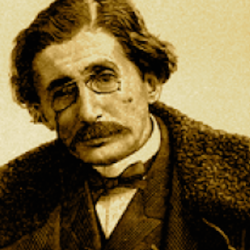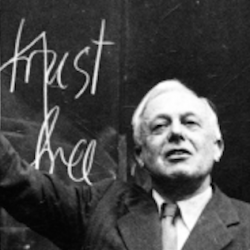Jeannine Verdes-Leroux doesn’t like Pierre Bourdieu, not one bit. In her Deconstructing Pierre Bourdieu, she calls him of offering a “con-artist’s sociology” (22), a lazy evidence-free sociology based more on Bourdieu’s personal experience than on research.
Some of her complaints could be lodged against any number of intellectuals. Does Bourdieu excoriate and school-marm other sociologists? He wouldn’t be the first. Does he make assertions without data that will back it up? Surely there’s a place for inspired intuition. Is his sociology a weapon against dominant classes? What great sociologist didn’t think his work to be liberating – you shall know the truth?
Verdes-Leroux quotes several passages from Bourdieu where he speaks of science and mathematics as worlds “purified of everything that causes problems, like sexuality and politics.” Bourdieu suggests that “some kind of social psychoanalysis should be made, analyzing the choice of pure sciences as a means of allowing one to hold at arm’s length the problems of existence, sexuality and everything else that is dependent on the social” (22). Verdes-Leroux doesn’t know how to “establish, much less prove” such claims. But it doesn’t seem too difficult to design surveys that could test the claim. My guess is that they would prove Bourdieu massively wrong, and that “the social” regularly intrudes into laboratory. But he’s not wrong to suggest that science has been presented in the modern world under the mythology of pure objectivity. Would it be any wonder if it attracted nerdy scientific hermits?
Her criticisms ring true, though, when she probes the reasons Bourdieu gives for his laborious writing and his regular invention of new terms: “Bourdieu advances various arguments according to the needs of the moment. For example, this mannerism is necessary in order to make an adequate construct of the object; or it is required to reflect the complexity of the object of which he is rendering account; or it is to prevent misreadings. He constantly justifies the need to resort to an artificial language. ‘The sociologist must resort to made-up words — words that are, at least relatively, protected against naive projections of common meanings. The more the ‘linguistic nature’ of these words predisposes them to resist over-hasty readings, the better they are protected against distortion (such is the case with habitus, which evokes an asset, or even property, or capital) and perhaps especially when they are inserted, enclosed, in a network of relations imposing their own logical constraints: allodoxia, for example — which means something difficult to say or to even to conceptualize in few words — . . . is enmeshed in the network of words with the same root: doxa, doxophobe, orthodoxy, heterodoxy, paradox’” (12-13).
She suggests that the real motivation lies elsewhere: “an exercise of lofty rhetoric, very frequent in Bourdieu, is not only an exercise in ;stylistic arrogance’ underscoring the theoretical magisteriality exerted by he who writes; a stereotype of symbolic violence, it functions effectively to protect the statement from any discussion” (13).
His rhetoric is itself a sort of violence enacted on those outside his circle. Which is ironic, since Bourdieu claims to be offering his sociology as a method for overcoming the violence of domination.















